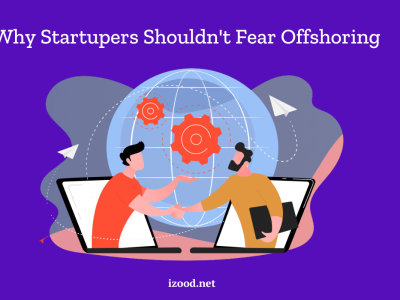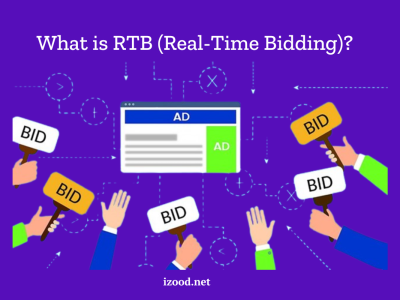Sales are easily regarded as being one of the most interconnected and interdependent industrial fields. While the number of customers procured and the percentage of revenue increase is used to measure success, every organization understands that it requires an army of people—from multiple teams and even those from other businesses—to work in tandem and help them get closer to these milestones.
The mighty channel partners are one of the most important entities in the entire journey of a product or service idea, eventually converting it into a sold service or product.
Any individuals, businesses, or third-party organizations involved in the sale of your product but who are not directly employed by your company are regarded as channel partners. Distributors, wholesalers, resellers, licensed service providers, installers, and even franchisees are all included.
The relationship between a channel partner and/or vendor can be complex. These partners aren’t employees of your company, but they are members of the team who help your company achieve its goals. Channel partners help sell your product to prospective end users on your behalf. After the sale, these partners may even provide follow-up maintenance and long-term support. These collaborations are particularly prevalent in the manufacturing, B2B, and technology sectors.

This relationship must be strong for strong customer success.
This includes extensive training and support, as well as ongoing feedback. The goal is to strengthen the partner/vendor relationship and increase long-term partner retention.
Don’t worry if this is your first time building a partner channel! Partner management is similar to intrinsic HR best practices. Your channel partners face a number of the same teamwork challenges that your employees do.
Best Practices For Creating A Channel Partner Strategy That Works
The best way to prepare for future challenges is to be more deliberate in the way you construct your partner channel network. We’ll go over the following best practices to help you develop your channel partner strategy:
Determine Your Ideal Partner
It’s not like every partner is going to be a good fit for your business.
Just because someone has a large following does not guarantee that they will supply you with the quality of leads or traffic you require. That is why you should start your search for your ideal partner by asking yourself a series of questions.
Who is their target audience? Since the partners will be attempting to sell to their audience, their audience will become your future customers. Examine the types of people attracted by your potential partner and try comparing them to your ideal customer. Will they perceive your offering as valuable?
How do they portray themselves? Whatever type of collaboration you pursue, your partner will ultimately end up representing you as well as your brand. Do they carry themselves in a way that benefits your business?
Are they compatible? Your company’s image is critical, and you must ensure that your company values are consistent, or you will send mixed signals.
Looking at the viewing public they attract is an important part of selecting the right partner. You should consider whether these are the kinds of customers you want to cope with on a routine basis. Will they add continuous value to your brand, or will it be a one-time transaction?
Determine Channel Training Requirements
Make certain that you have a deep understanding of what your partners require. Some partners, like those who sell your goods or run your franchises, may require marketing training. Sales reps and distribution centers, on the other hand, require more hands-on training, such as how the product’s various features work.
You can assist your channel partners in succeeding by determining the type of training they require. This can be accomplished by conducting regular surveys and identifying recurring problems.
Align your channel partner training with your company’s key performance indicators (KPIs)
Ascertain that your channel partner’s training aligns with your company’s KPIs. These indicators track how your company is performing concerning your set targets for the year, and partners must be aware of these objectives.
Channel partners may become disconnected from your KPIs due to outdated learning or simply a lack of continued exposure to them. How can partners assist your company in meeting its objectives if they are oblivious to them?
When developing training courses, make certain that they contribute to the overall goals of your company. Furthermore, state these objectives explicitly in the course so that partners are aware. Tell your partners if you want to reduce service response times, boost customer retention, or perhaps even gain a certain amount of new customers.
Use the appropriate LMS
In-person training has taken a back seat for the foreseeable future in light of the pandemic. Fortunately, having an LMS makes it possible for channel partner training to continue. But, you will need a well-equipped and versatile LMS to truly power up your partner training.
Certain features are required to facilitate quality training for your channel partners. It should be optimized for various devices such as mobile phones and tablets. It must scale well with the magnitude of your business network, so a cloud-based LMS is suitable. Robust monitoring and reporting are required if you want to accurately measure your partners’ training performance and compliance.
Encourage Channel Partners
Setting clear expectations, providing incentives, and making partners feel valued are all essential for keeping them driven and inspired. Your training objectives can be segmented into benchmarks that members of the team will focus on throughout the program. As a result, you have the chance to motivate your team by acknowledging their achievements while also boosting training efficiency. Certificates and rewards, such as product knowledge or sales skill certification, may be given for completing training sections. A scoreboard can be used to monitor these incentives and encourage friendly competition.
Incorporate your company’s values into your training to promote training completion as well as to improve performance. You must explain to channel partners the core beliefs that the firm holds for its workforce, partners, and clients, and the way channel partners represent the firm’s culture.
Train & Prepare your New Partners
When it comes to new employees, training and development are second nature. You want them to become as effective and efficient as possible as soon as possible. The same is true for your channel partners. Training and education materials can go a long way toward assisting your partners in understanding your products.
While your channel partners are unlikely to want to become product specialists, assisting them in comprehending the fundamentals can give them an advantage in convincing their audience to consider your products. It also aids in clearing up any misunderstandings so that you don’t end up having a partner that spread misinformation or make false claims.
Maintain regular communication with partners.
You most likely use performance management software to keep open lines of communication with your workforce. Channel partners, too, want this feedback!
Talking to channel partners regularly keeps them up to date on the most recent product news and brings expectations and agreed-upon standards front of mind. There are a few simple ways to communicate with partners regularly:
- Set up an email newsletter to send out notifications, updates, and product announcements regularly.
- Make a Facebook or Slack group for real-time updates.
- Make announcements and host discussion forums in your LMS.
- If possible, invite them to regular in-person conferences at your office.
Furthermore, just as you congratulate partners on their successes, keep in touch with partners who are struggling to meet expectations. Don’t let a lack of success surprise you; instead, maintain an ongoing dialogue with those partners about how to persist and keep improving.
Conclusion
Channel partner training helps your company’s representatives succeed, helps you build stronger connections with them, and accelerates your company’s growth. This training can benefit businesses of all sizes and industries, which is why it must be handled with caution. Develop your partner training strategy keeping the above-stated best practices in mind to ensure you meet your objectives.







